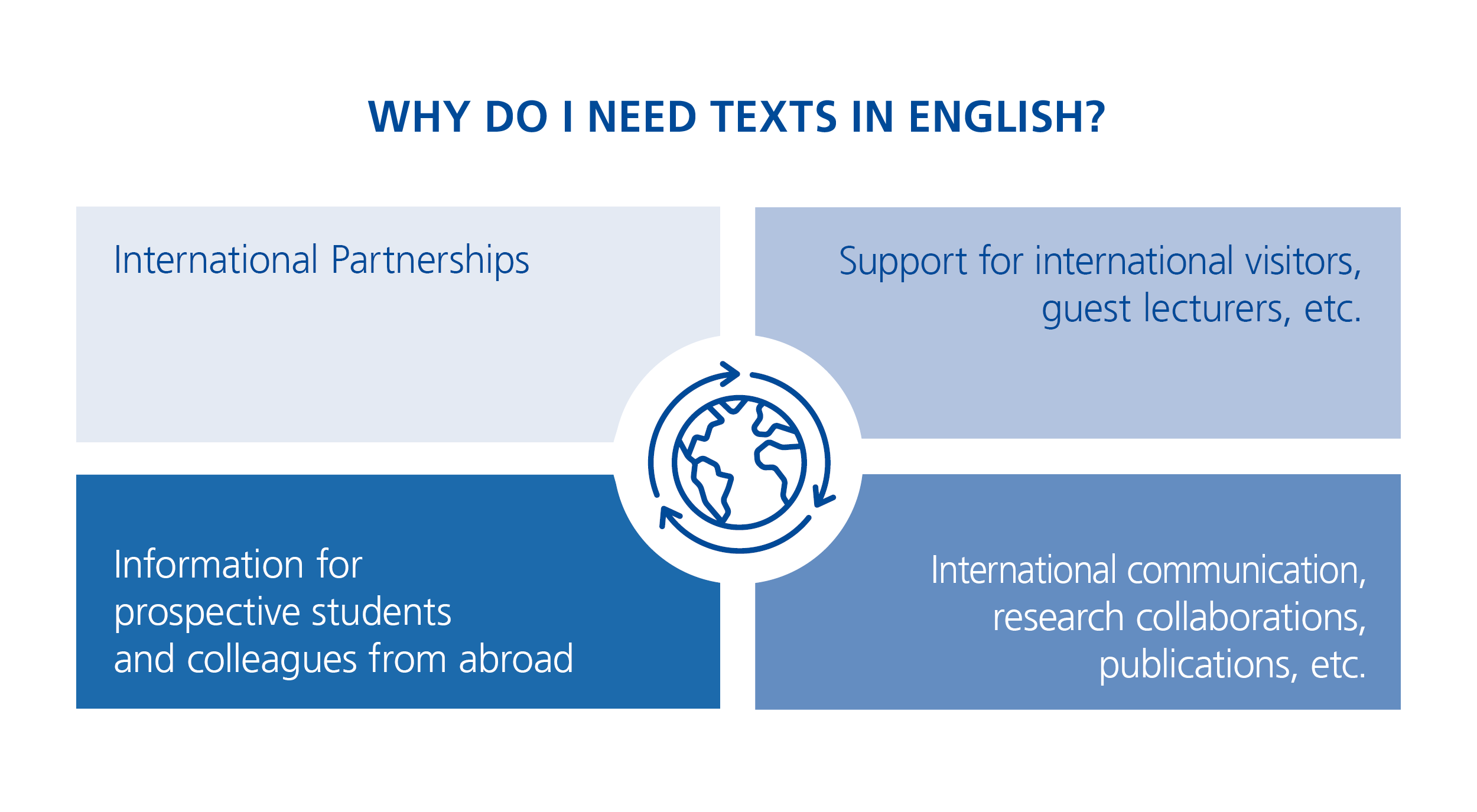English Language Services
 Photo: stock.adobe.com/Andrey Popov
Photo: stock.adobe.com/Andrey Popov
Translation Service | Editing Service | English Conversation Club | English Style Guide | Glossary | English Learning Support | German Learning Support
Why English?
A question many at the FernUniversität may ask themselves is: Why does a German-speaking university even need an English translation service? The reasons are manifold, but the most important is that English has become the lingua franca of international communication. With a total number of English speakers approaching 1.5 billion,1 this is not surprising. With this in mind, any player wanting to be active on the global stage is well-advised to use English in order to address the largest possible audience. An ability to communicate in English also expands to the possibilities for international cooperations in research and teaching enormously. The graphic below offers a number of suggestions why members of the FernUniversität might want to offer their documents in both German and English.
1 Cf. Eberhard, David M., Gary F. Simons, and Charles D. Fennig (eds.). 2022. Ethnologue: Languages of the World. Twenty-fifth edition. Dallas, Texas: SIL International. Online version: https://www.ethnologue.com/guides/ethnologue200.

Description of the graphic “Why do I need texts in English?”
Under the question “Why do I need texts in English?” there are four boxes containing answers:
- International partnerships
- Support for international visitors, guest lecturers, etc.
- Information for prospective students and colleagues from abroad
- International communication, research collaborations, publications, etc.
Translation Service: Internal and External Communications
In today’s international academic landscape, having the ability to communicate internationally very often means being able to present your texts in stylistically appropriate and accurate English. To support international cooperations, research, and communications, as well as internal administration services, the International Office offers a translation and editing service for international projects, applications, and internal and external communications.
This service includes translating, editing, and proofreading
- international research and project applications;
- brochures, pamphlets, forms, and presentations;
- website pages and administration documents;
- international communications and PR; and
- central texts that support international projects in research and teaching.
The service also offers general advice on English-language communications and terminology.
If you are interested or have any questions, please do not hesitate to reach out!
Contact
 Photo: Privat
Photo: Privat
Nicholas Quaintmere
Email: nicholas.quaintmere
Phone: +49 2331 987-4256
Translator | Editor for English-language projects and communications
English Editing Service: Teaching Material
To provide support for lecturers, Daniel Löhlein (Division 5.1 Media Management), in cooperation with the International Office, offers an editing and proofreading service for your English-language study materials.
The editing service addresses the following:
- Spelling, grammar, and punctuation
- Consistency of capitalization, hyphenation, abbreviations, etc.
- Diction and usage
- Conventions of American English
- Gender-neutral and inclusive language
Of course, you are free to accept or reject each edit as you see fit.
Please do get in touch if you would like to discuss your project or have any questions!
Contact
 Image: Angelika Loeffler
Image: Angelika Loeffler
Daniel Löhlein
Email: daniel.loehlein
Phone: +49 2331 987-2012
Editor for English-language teaching material

